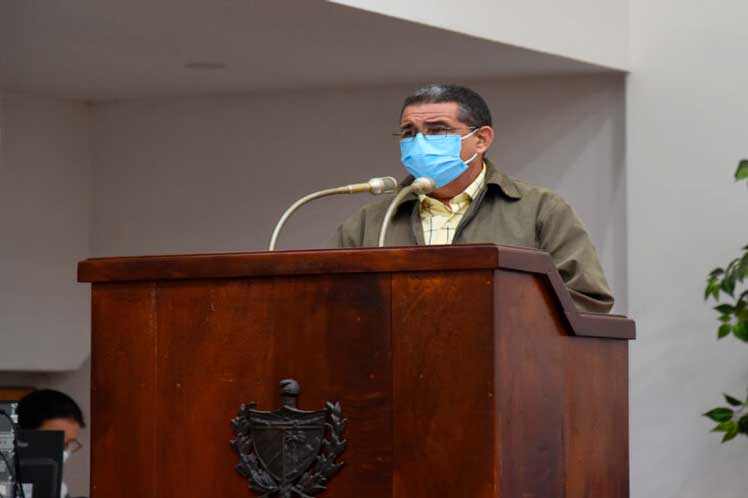During the celebration of an event on agroecology, Rodríguez highlighted the need to achieve agricultural extension with an increasingly massive participation of our farmers with concepts of producing using these practices and sustainability in times of scarcity.
On the other hand, the representative of the United Nations Food and Agriculture Organization (FAO) in Cuba, Marcelo Resende, considered that the new economic context and agroecology in the country have three fundamental pillars.
The first, he said, is the development of this activity within the framework of updating the economic model, in an environment of development and openness with instruments to carry out their productions in more autonomous ways.
Second, agroecology within the framework of current local development, is a strategy contemplated in all the island’s legal instruments.
One cannot speak of agroecology, nor of food sovereignty without development, he said, it is a new challenge, granting more autonomy to local power.
Finally, the application of science, technology and innovation in the context of promoting and strengthening them. Resende stressed that it is necessary to scale agroecological practices and added the importance of international cooperation and show how Cuba has organized a network that includes political actors interested in multiplying these experiences.
Regarding the scaling of the projects, Resende estimated there are four main elements, the need for inputs and technological equipment, strengthening the national network, as well as exchange, training and qualification of all the farms.
Another challenge for agroecology in Cuba is to demonstrate its economic viability, he pointed out, and we must have technical and scientific evidence to prove it.
On this day, the initiative and innovative evidences of sustainable agriculture and agroecology for scalable rural development in Cuba were achieved. It was launched in 2019 with the support of the European Union and technical assistance from FAO, and the leadership of the Ministries of Agriculture and Food Industry, the National Association of Small Farmers and the Cuban Association of Agricultural and Forestry Technicians.
Of the 251 most innovative experiences in agroecology and sustainable agriculture in the country, 15 were awarded.
ef/msm/tdd










